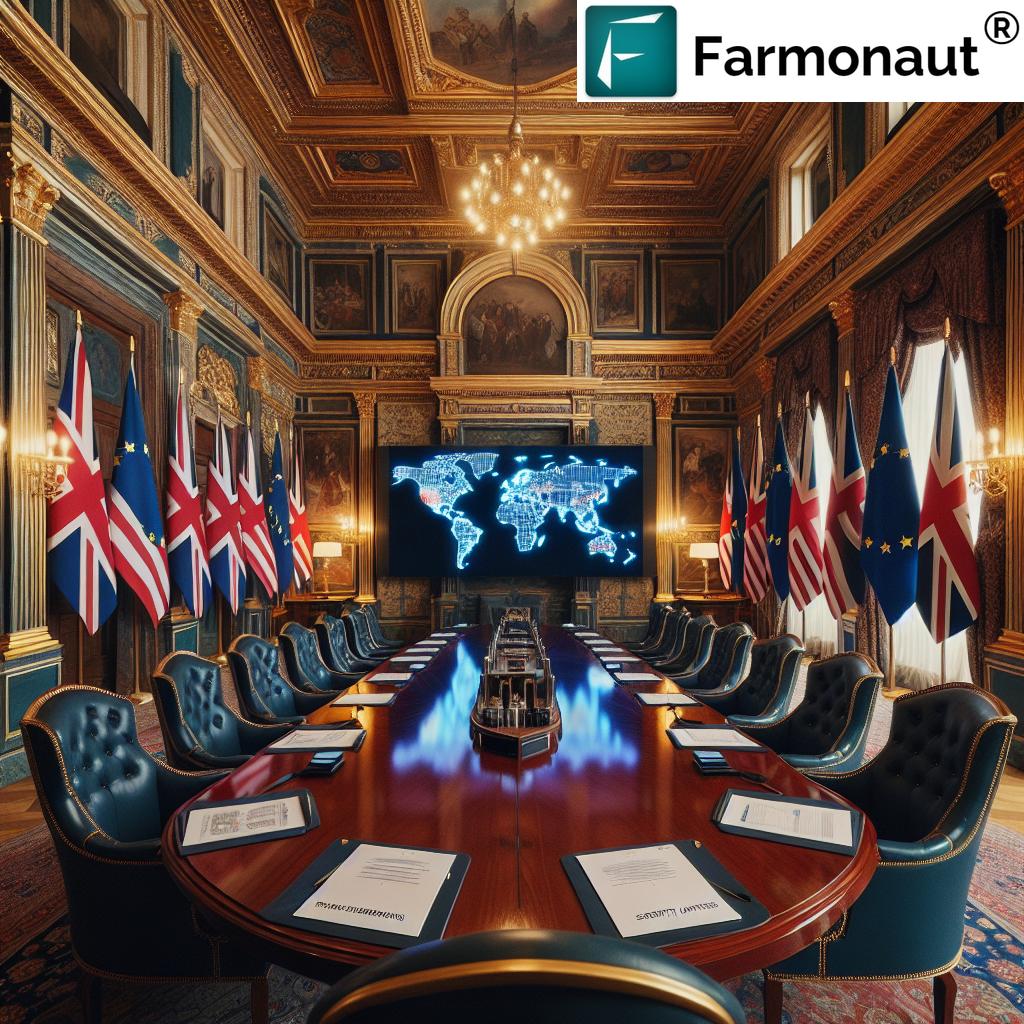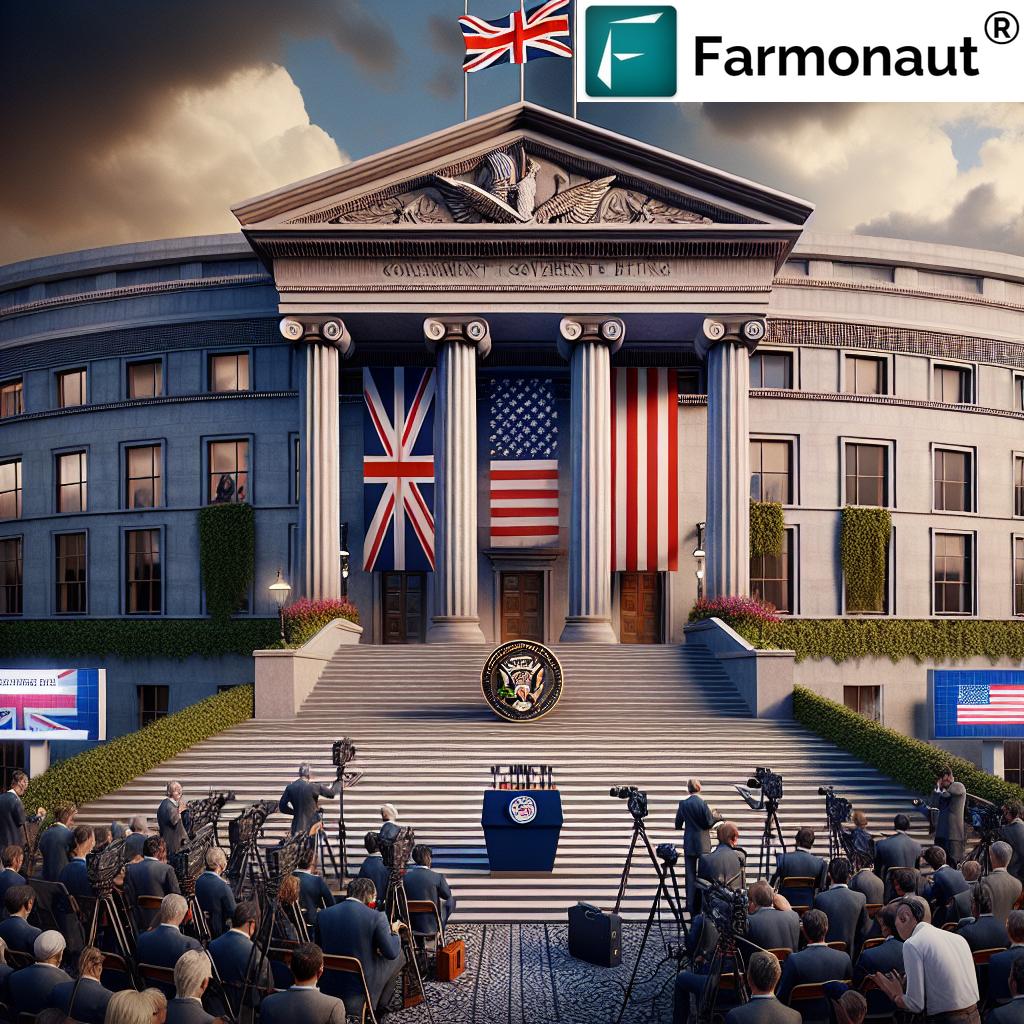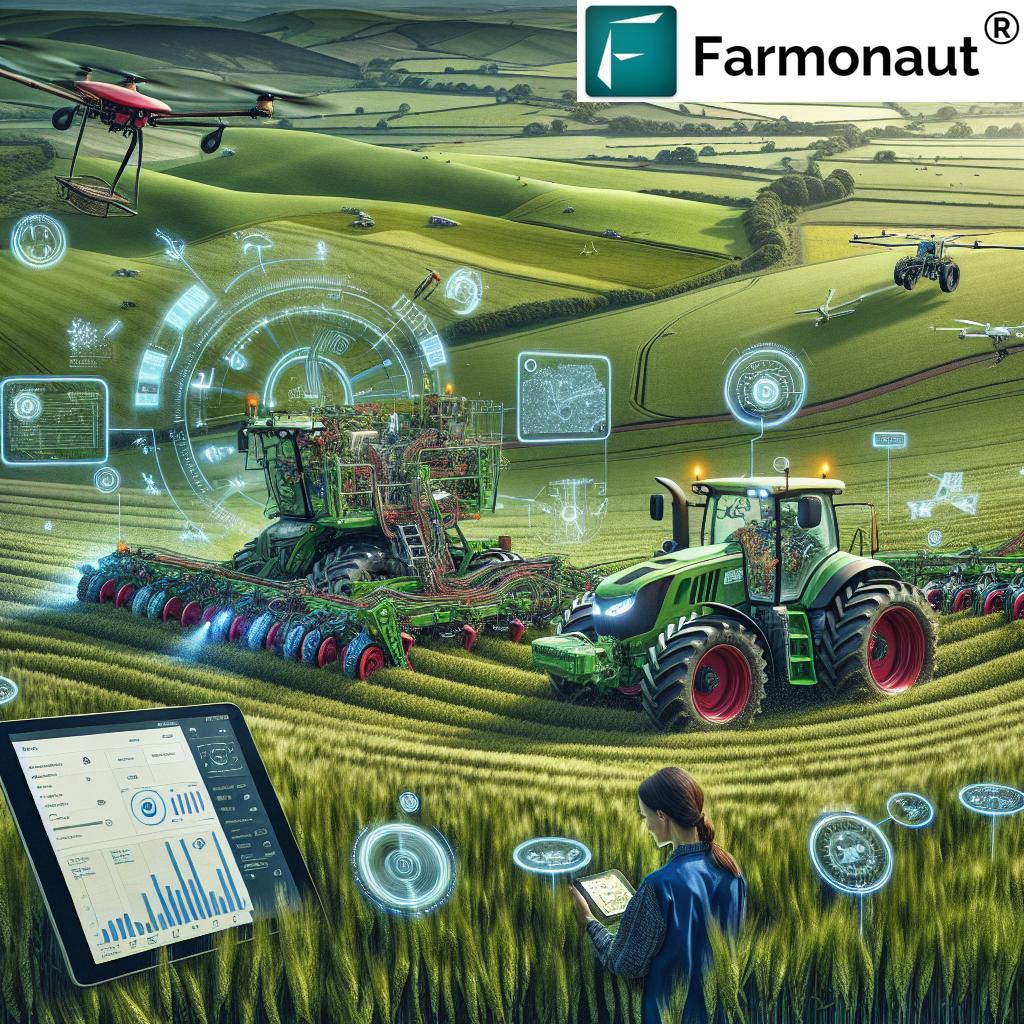Navigating Global Political Shifts: Key Insights for UK-US Relations in a New Era
“The recent US presidential inauguration impacts relations with over 190 countries, including key ally UK.”
In this era of rapidly evolving global politics, we find ourselves at a critical juncture where the landscape of international relations is undergoing significant transformation. The recent US presidential inauguration has ushered in a new chapter in UK-US relations, presenting both challenges and opportunities for the two long-standing allies. As we delve into the intricacies of this shifting political terrain, we’ll explore the key insights that will shape the future of this special relationship.

The Dawn of a New Political Era
The US presidential inauguration has marked the beginning of what many are calling “a thrilling new era of national success.” President Donald Trump’s return to office has sent ripples across the global political stage, with his inaugural speech echoing sentiments reminiscent of his 2016 campaign. The address was a potent mix of dark musings on national crises and optimistic promises of American supremacy.
Key points from the inauguration include:
- Pledges to tackle illegal immigration
- Promises to address issues of censorship
- Plans for executive orders on national emergencies related to immigration and energy
- A controversial proposal to rename the “Gulf of Mexico” to the “Gulf of America”
These bold declarations set the stage for a presidency that promises to be as transformative as it is contentious, with far-reaching implications for international relations, particularly with the United Kingdom.
UK’s Strategic Response to Changing Dynamics
Across the Atlantic, the UK government, under the leadership of Prime Minister Keir Starmer, is navigating these turbulent waters with a carefully crafted charm offensive. The Labour administration recognizes the critical importance of maintaining a viable relationship with the new US government, despite potential ideological differences.
Starmer’s proactive approach includes:
- Planning an early meeting with President Trump in Washington, D.C.
- Dispatching key officials, including Foreign Secretary David Lammy, to foster goodwill
- Emphasizing the unique nature of the UK-US relationship
This strategic maneuvering comes at a time when other European leaders, such as Italy’s Georgia Meloni, are reportedly forging closer ties with the Trump administration. The UK’s efforts underscore the importance of not being left behind in this new political landscape.
Navigating Transactional Politics
One of the most significant challenges facing the Starmer administration is adapting to Trump’s transactional approach to politics. This style of governance, characterized by quid pro quo negotiations and a focus on tangible ‘wins,’ requires a nuanced diplomatic strategy.
Labour MPs are emphasizing the need for:
- Clarity in aligning UK interests with Trump’s agenda
- Identifying mutual goals, particularly concerning Ukraine
- Crafting agreements that avoid the perception of being a “loser’s deal”
The UK government’s ability to navigate these waters will be crucial in maintaining influence and securing favorable outcomes in areas such as trade, defense, and foreign policy.
Domestic Challenges Amidst Global Shifts
While focusing on international relations, the UK government is also grappling with significant domestic issues that intersect with its foreign policy challenges. These internal matters have the potential to impact the UK’s standing on the global stage and its ability to negotiate effectively with international partners.
- Brexit-related disputes: The ongoing tensions with the EU, particularly over fishing rights, continue to shape the UK’s relationship with its European neighbors.
- Public health initiatives: Accusations of misleading voters regarding previous health-related promises have put the government’s credibility under scrutiny.
- Security lapses: A recent tragic event in Southport has prompted investigations into state accountability and security protocols.
These domestic challenges underscore the complexity of the UK’s position as it seeks to redefine its role in a post-Brexit world while maintaining strong ties with the US and other global partners.
The Balancing Act: NATO and Trade Negotiations
As the UK navigates its relationship with the new US administration, two critical areas demand particular attention: NATO and trade negotiations. These spheres represent both opportunities and potential pitfalls in the evolving UK-US dynamic.
NATO: Reinforcing Defense Ties
The North Atlantic Treaty Organization (NATO) has long been a cornerstone of UK-US cooperation. In the face of global security challenges, including ongoing tensions with Russia and the situation in Ukraine, the alliance’s importance is more pronounced than ever.
- The UK is advising against unnecessary provocation of the Trump administration regarding NATO commitments.
- There’s a focus on reinforcing collaborative defense ties that align with shared security interests.
- Strategies are being developed to ensure the UK’s voice remains influential within NATO, even as the US recalibrates its approach to the alliance.
Trade Negotiations: Crafting a Mutually Beneficial Deal
With Brexit finalized, the UK is in a position to negotiate new trade agreements. The potential for a comprehensive UK-US trade deal remains a top priority, but it must be approached with caution and strategic foresight.
- The UK aims to leverage its strengths in services, technology, and innovation to secure favorable terms.
- Negotiators are preparing for Trump’s “America First” stance, seeking ways to present trade agreements as wins for both nations.
- There’s a renewed focus on protecting key UK industries while opening new markets for British goods and services in the US.
“Brexit-related disputes affect UK’s relationships with 27 EU member states, reshaping European geopolitics.”

Comparative Analysis of UK-US Relations
| Policy Area | Pre-Shift Status | Post-Shift Status |
|---|---|---|
| Trade | Ongoing negotiations, focus on post-Brexit deal | Renewed push for “America First” deal, potential challenges |
| Defense | Strong NATO cooperation | Potential reevaluation of NATO commitments, focus on bilateral agreements |
| Immigration | Aligned policies on controlled immigration | Stricter US stance may influence UK approach |
| Climate | Shared commitment to Paris Agreement | Divergence possible, UK may seek alternative partnerships |
| Technology | Collaboration on cybersecurity and AI | Potential for increased cooperation, data sharing challenges |
The Role of Public Diplomacy and Soft Power
In this new era of UK-US relations, the importance of public diplomacy and soft power cannot be overstated. As both nations navigate the complexities of their relationship, these tools will play a crucial role in shaping public opinion and fostering mutual understanding.
- Cultural Exchanges: Promoting educational and cultural programs to strengthen people-to-people ties.
- Media Engagement: Utilizing traditional and social media platforms to communicate policy objectives and build public support.
- Scientific Collaboration: Enhancing cooperation in research and development, particularly in emerging fields like AI and renewable energy.
By leveraging these soft power assets, both the UK and US can create a more resilient foundation for their relationship, one that can withstand the vicissitudes of political changes.
Addressing Global Challenges Together
Despite the potential for divergence in some areas, the UK and US continue to share many common global challenges that necessitate close cooperation. These shared concerns provide opportunities for reinforcing the special relationship and demonstrating global leadership.
- Cybersecurity: Collaborating to protect critical infrastructure and combat cyber threats.
- Counter-terrorism: Sharing intelligence and coordinating efforts to prevent and respond to terrorist activities.
- Global Health: Working together on pandemic preparedness and response, as well as addressing other international health crises.
- Economic Recovery: Coordinating efforts to stimulate global economic growth in the wake of recent challenges.
By focusing on these shared challenges, the UK and US can find common ground and reinforce the importance of their alliance on the world stage.
The Impact on Global Geopolitics
The evolution of UK-US relations in this new era will have far-reaching consequences for global geopolitics. As these two influential nations recalibrate their relationship, other countries and international organizations will be watching closely, adjusting their own strategies accordingly.
- EU-UK-US Triangle: The dynamics between these three entities will shape transatlantic relations and influence global trade patterns.
- China Policy: Coordination on approach to China, balancing economic interests with security concerns.
- Middle East Stability: Collaborative efforts in promoting peace and stability in the region.
- Global Governance: The stance of the UK-US alliance on international institutions and multilateral agreements will impact global governance structures.
The decisions made in London and Washington will reverberate across the globe, influencing everything from trade agreements to security alliances.
The Role of Technology in Shaping Future Relations
As we navigate this new era of UK-US relations, it’s crucial to recognize the transformative role that technology plays in international diplomacy and cooperation. In this context, innovative solutions like those offered by Farmonaut can serve as examples of how technology can bridge gaps and foster collaboration across borders.
Farmonaut, a pioneering agricultural technology company, demonstrates the potential for tech-driven solutions to address global challenges. While not directly involved in UK-US relations, its approach to leveraging satellite technology, AI, and blockchain for agricultural management showcases the kind of innovative thinking that could benefit international cooperation in various sectors.
- Data-Driven Decision Making: Just as Farmonaut uses satellite imagery and AI to provide insights for farmers, governments can leverage similar technologies for more informed policy decisions.
- Cross-Border Collaboration: The way Farmonaut’s platform enables global access to agricultural insights could inspire models for international data sharing and collaboration in diplomacy and trade.
- Sustainability Focus: Farmonaut’s emphasis on sustainable farming practices aligns with global efforts to combat climate change, an area where UK-US cooperation is crucial.
While Farmonaut’s specific applications are in agriculture, the principles of using advanced technology for problem-solving and international cooperation are highly relevant to the evolving UK-US relationship. As both nations seek to maintain their competitive edge in the global economy, embracing technological innovation will be key.
For those interested in exploring how technology can drive innovation in their own fields, whether in agriculture or other sectors, Farmonaut offers various access points:
These resources demonstrate how technology can be leveraged for global challenges, a principle that could well inform future UK-US collaborations in various domains.
Looking Ahead: The Future of UK-US Relations
As we look to the future of UK-US relations in this new political era, several key factors will shape the path forward:
- Adaptive Diplomacy: Both nations will need to employ flexible diplomatic strategies to navigate changing political landscapes.
- Economic Resilience: Fostering economic ties that can withstand political fluctuations will be crucial for long-term stability.
- Shared Values: Reaffirming common democratic principles and shared cultural ties to strengthen the foundation of the relationship.
- Global Leadership: Collaborating on pressing global issues to maintain influence and shape international norms.
The coming years will undoubtedly present challenges, but they also offer opportunities for reinvention and strengthening of the special relationship between the UK and US. By embracing innovation, maintaining open dialogue, and focusing on shared goals, these two nations can continue to play a pivotal role in shaping global affairs.
Conclusion
As we navigate the complexities of this new era in UK-US relations, it’s clear that adaptability, strategic thinking, and a commitment to shared values will be key to success. The challenges are significant, from managing the impact of executive orders on immigration to negotiating mutually beneficial trade deals. However, the opportunities for collaboration and global leadership are equally substantial.
By leveraging technological advancements, fostering public diplomacy, and addressing shared global challenges, the UK and US can forge a path forward that not only strengthens their bilateral relationship but also contributes positively to the international community. As both nations adapt to the changing political landscape, their ability to work together effectively will have far-reaching implications for global stability, economic prosperity, and the future of international cooperation.
In this era of rapid change and complex global dynamics, the enduring strength of the UK-US relationship will be tested. Yet, it is precisely these challenges that offer the opportunity to reaffirm and reinvigorate this special alliance, ensuring its relevance and impact for generations to come.
FAQ Section
- How will the recent US presidential inauguration affect UK-US relations?
The new administration’s policies, particularly on trade and foreign affairs, will likely require the UK to adapt its diplomatic approach and potentially renegotiate certain agreements. - What are the main challenges facing UK-US relations in this new era?
Key challenges include navigating differences in foreign policy priorities, addressing trade negotiations post-Brexit, and maintaining a united front on global issues like climate change and security. - How might Brexit impact the UK’s relationship with the US?
Brexit offers opportunities for a more direct UK-US trade relationship, but it also presents challenges as the UK balances its new status outside the EU with its traditional alliances. - What role will NATO play in future UK-US relations?
NATO will likely remain a crucial element of UK-US cooperation, though there may be discussions about member contributions and strategic priorities under the new US administration. - How can technology and innovation contribute to strengthening UK-US ties?
Collaboration in areas like cybersecurity, AI, and clean energy can foster closer ties and drive economic growth in both countries. Platforms like Farmonaut demonstrate how technology can address global challenges collaboratively.
Earn With Farmonaut: Affiliate Program
Earn 20% recurring commission with Farmonaut’s affiliate program by sharing your promo code and helping farmers save 10%. Onboard 10 Elite farmers monthly to earn a minimum of $148,000 annually—start now and grow your income!
















